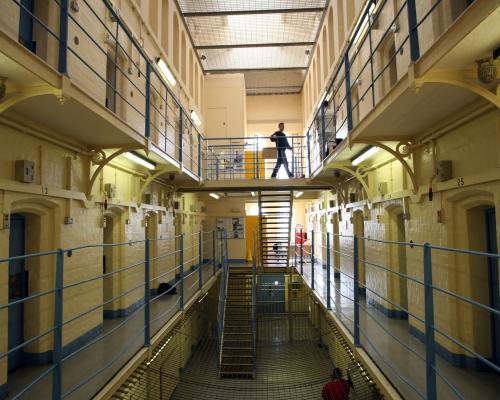
In response to the recent publication of Anne Owers’ report on prison capacity, Martin Kettle rightly points out that our prison system has historically been out of sight and out of mind, not a priority for anyone – whether among government departments or in the public consciousness (The biggest problem for Starmer and co: the machinery of government is broken and they can’t fix it, 7 August). This is something we must change. It should matter to all of us, not least because the distance that lies between law-abiding lives and the justice system is thinner than we like to think. The blame for the crisis can be fairly laid at the doors of multiple governments who have traduced the prison system in the quest for votes, playing to the very worst of our human instincts.
What we need is vision and courage. We need leadership that works for change and looks beyond day-by-day headcount management, and investment in what really works. And what really works is already evidenced in the work of so many small, independent charities across the justice system. None of it is rocket science. Time and again it proves to be person-centred, relational work delivered by a trained and supported workforce. If we increased investment in that now, we would see the savings three, five and 10 years down the line.
The challenge is breaking the learned patterns of crisis management across the system, which roll from brink of breakdown to brink of breakdown and perpetuate a short-term vision framed forever in the assumption of inexorable increases in numbers.
Penny Parker
Founder and CEO, StandOut
• Martin Kettle is right about the prison crisis, but, as it were, not correct enough. Since the media’s representation of “public demand” stands only for tougher sentencing and treatment, the prison system has not only all but disintegrated as money has tightened, but the most devastating consequence has been the rise of readmission rates. Almost all attempts to sustain re-education and reform of prisoners have been replaced by dysfunctional repression of what this induces: enduring alienation.
Richard Ellis
Derby
• Martin Kettle is right in explaining a major reason why the UK’s prisons have problems in accommodating convicted people. But it ignores the issue of our having the largest numbers in prison of any country in western Europe.
About 30 years ago I was a school governor alongside an experienced justice of the peace who was also an ex-teacher. We discussed the introduction of restorative justice to help reduce the numbers in prison and reduce reoffending. I said that it seemed that a significant number of people in prison were, possibly, creative but they had used that creativity in the wrong way. She agreed. I think the same still applies but our current leader is taking the pragmatic approach to so many things that such questions as this will not be asked. It’s long past time that they were; other aspects of public services and education should be addressed to reduce offending and make more of people’s positive potential.
David Cockayne
Lymm, Cheshire





